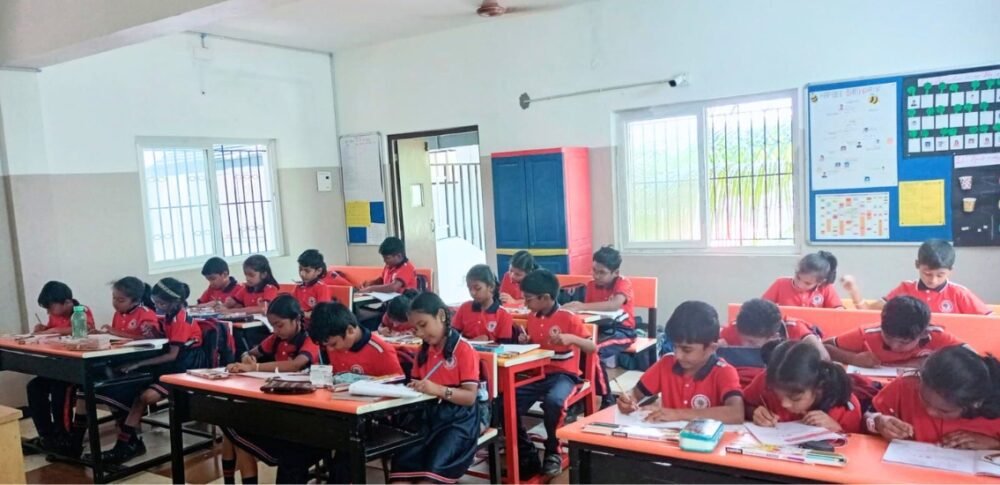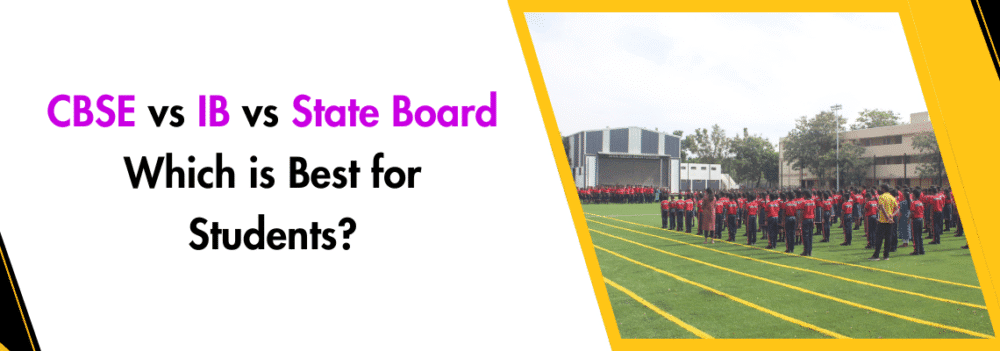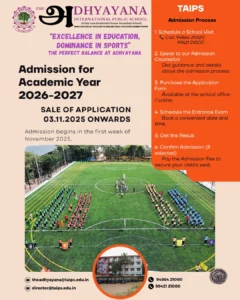Choosing between CBSE, IB, and State Board is a major decision for Indian parents and high school students facing the crossroads of academic opportunity. Each board offers distinct philosophies, learning environments, and outcomes, all of which impact not just what students learn but how they grow. When considering CBSE vs IB vs State Board, it’s important to explore curriculum structures, teaching styles, long-term possibilities, and which environment best nurtures a child’s aspirations.
CBSE: The National Standard
The Central Board of Secondary Education (CBSE) is renowned across India for its systematic approach and focus on fundamental academic subjects. It emphasizes Science, Mathematics, and English, providing a structured curriculum that ensures consistency across regions. Many families prefer CBSE because it smooths transitions for those who might relocate and need to move between schools. The board’s alignment with national entrance exams like JEE and NEET makes it a strong choice for students targeting engineering, medicine, or other professional degrees within India. Assessments in CBSE are standardized and rigorous, but there is a growing inclusion of co-curricular activities and skill-based learning that ensures holistic development.
IB: The International Edge
The International Baccalaureate (IB) represents a different philosophy, aiming to create global citizens who think critically, solve problems, and approach education through inquiry and research. The IB curriculum is flexible, giving students the freedom to explore beyond textbooks with a focus on creativity, independent projects, and internal assessments. Students who thrive here usually appreciate active learning and enjoy exploring real-world issues. IB programs can be intensive and require time management and a proactive approach, which prepares students exceptionally well for universities abroad. For families dreaming of global opportunities, IB opens doors to institutions worldwide and encourages personal as well as academic growth.
State Boards: Localized Learning
State Boards are tailored to meet the needs of students within a specific region, often offering instruction in the state’s official language as well as English. The curriculum in State Boards incorporates regional culture, history, and needs, which can be deeply meaningful for families who wish their children to stay grounded in their local environment. State Boards also tend to be more affordable, providing access to quality education for a vast number of students. For those aiming for state-level entrance exams or local colleges, the State Board experience can be highly relevant. However, the challenge arises when students need to transfer between states, as curricula and exam styles can differ significantly from one board to another.
Making the Best Choice

When deciding among CBSE vs IB vs State Board, Indian parents and students should assess what fits the child’s personality and future ambitions. Those targeting Indian competitive exams or needing the flexibility of moving between states may find CBSE to be the best option, while students who thrive on research, international perspectives, and holistic learning may find IB to be inspiring and transformative. On the other hand, State Boards offer rootedness, affordability, and accessibility suited to regional needs and aspirations. Each board shapes students in unique ways, so the best option is the one that aligns most closely with the learner’s goals and family circumstances.
At The Adhyayana International Public School (TAIPS), a premier CBSE school in Coimbatore, we empower students with a strong academic foundation and world-ready skills, ensuring every learner is prepared for a bright and adaptable future. For more on how TAIPS brings out the best in every student, explore our CBSE school.




